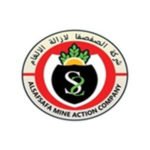ISO 29001:2020, developed jointly by the International Organization for Standardization (ISO) and the American Petroleum Institute (API), defines quality-management requirements for the oil and gas supply chain. It extends ISO 9001 principles with sector-specific controls such as equipment traceability, supplier qualification, and operational risk management.
For Iraq one of the Middle East’s largest oil producers this certification is essential. It ensures that exploration, refining, construction, and service companies deliver consistent, safe, and reliable products while complying with Iraqi Accreditation System (IQAS) and international tender specifications. Since 2012, AGS IRAQ, an American-accredited certification body, has helped energy organizations in Iraq implement and maintain ISO 29001 systems with 100 % success.
Trusted by Iraq’s leading oil & gas companies for ISO 29001 implementation and auditing since 2012.
Our five-step process delivers full compliance with ISO 29001 and API Spec Q1 requirements.
Evaluate existing QMS against ISO 29001 standards and develop a plan to close gaps.
Identify critical operations — design, procurement, manufacturing, and delivery — and establish risk controls.
Prepare a QMS manual, operational procedures, records, and supplier evaluation criteria to standardize quality control.
Perform internal audits, address non-conformities, and ensure top-management commitment to continuous improvement.
AGS IRAQ auditors conduct Stage 1 (document review) and Stage 2 (on-site) audits. Annual surveillance verifies ongoing compliance and process improvement through the PDCA cycle.
Satisfied Clients
Years of Experience
ISO certifications
Our Others ISO Certifications































